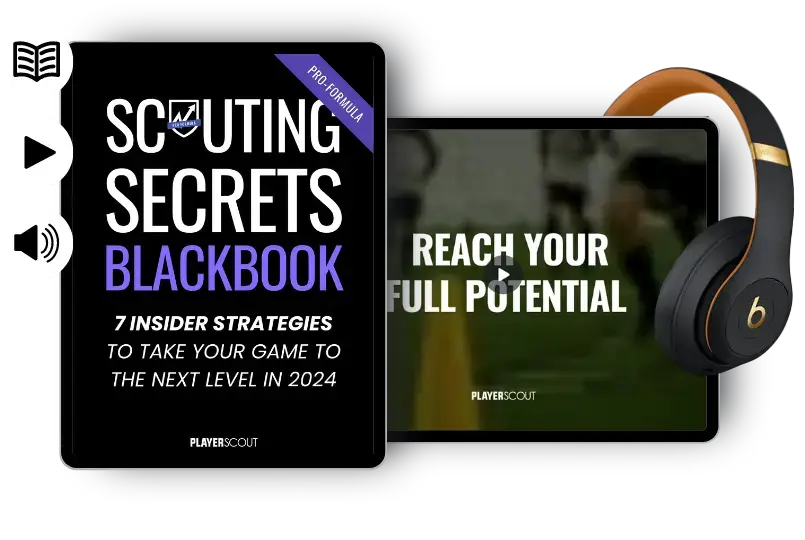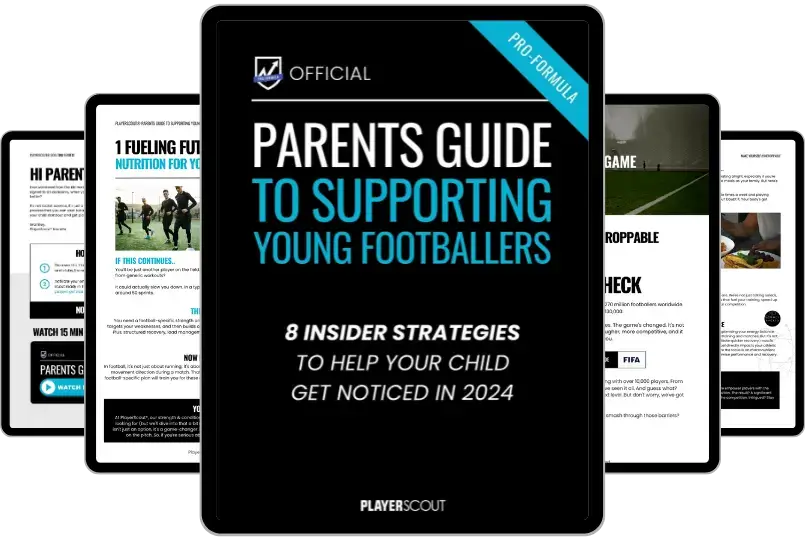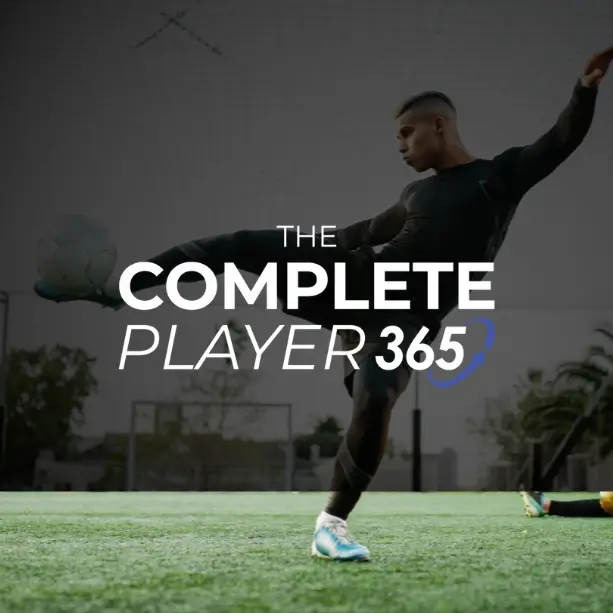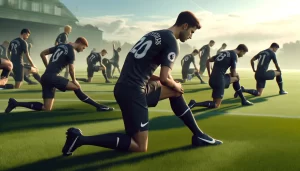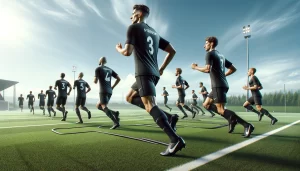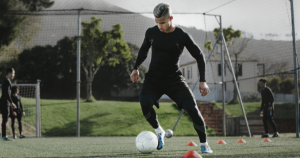Do you want to know what football scouts look for in a player?
Then you’re in the right place.
Because this page will show you exactly what scouts look for. And how they report back on players to establish if they are suitable.
The best part?
You’ll get an insight into how a scout’s work, so you can improve your own game and make yourself a better prospect.
Let’s do this!
Talent Identification Model
Before we look at position-specific scouting, lets look at the general areas of talent identification.
This brings us to The Five Multidimensional Properties for Talent Identification
Created In 1998 psychologist Jane Davidson and Michael Howe. This model forms the basis taught to professional scouts on the PFSA scouting course.
In short…
The following is a cheat-sheet on what football scouts look for.
The five talent identification predictors are:
1: Anthropometric Talent ID Predictors
This assesses your physical measurements.
Not easy for a player to change or adapt (except your weight). But important to understand that scouts may be looking for different body types.
Other areas that fall under this predictor are:
- Growth
- Body Type
- Height
- Weight
2: Physiological Talent ID Predictors
These predictors assess your physical ability to perform work. Some physiological areas a scout may look for are:
- Muscular Strength
- Stamina and endurance throughout the 90 minutes
- Balance and Power
- Speed and Agility
If you feel you are lacking in any physiological areas, don’t fret…
You can improve these areas with specific training.
3: Psychological Talent ID Predictors
One of the hardest things for a coach to develop is a player’s mental strength. So, scouts are very interested in mentally strong players.
These predictors include:
- Discipline
- Confidence
- Determination
- Motivation
- Attention
- Awareness
- Ambition
- Respect
4: Sociological Talent ID Predictors
It’s not always how a player performs on the pitch. For a scout to get a true feeling for a player, he must understand outside influences.
This includes:
- Socio-economic influences
- Education
- Parental Support
These areas are important as academies may have only 3/6 hours of contact with a player a week.
Which means…
There are potentially 162 hours a week that a player can still work towards his development.
This requires family input and support.
Whether its creating a safe home environment or providing nutritious meals. A young players support network is key to his development.
Also…
Scouts may approach your school for a report to understand:
- Your behaviour
- How you learn
- How respectful you are to teachers
- How you interact with your piers
5: Technical Skills Talent ID Predictors
This area looks at the individual skill of a player. These skills can also be developed by practice and structured training.
Technical skills may include:
- Ball control
- Positioning
- Awareness
- Dribbling
- Shooting
We go deeper into the exact criteria scouts used to determine a player later in the article.
Now you know the general aspects of talent identification. It’s time to understand what scouts want to see when assessing a player by positions.
What do scouts look for in a goalkeeper?
- Aerial ability
- Command of the penalty area
- Communication with defence
- Decision Making
- Distribution
- Good reflexes
- Handling
- One-on-one ability
- Positioning
- Shot Stopping
What do football scouts look for in a full back?
- Anticipation
- Crossing
- Marking ability
- Pace
- Stamina
- Tackling ability
- Team responsibility
- The timing of forward runs
- Work rate
What do scouts look for in a centre back?
- Ball Control (becoming more important for defenders)
- Bravery in attempting challenges
- Concentration
- Communication
- Height
- Position
- Reading of the game
- Speed
- Strong and accurate ball heading (defensive and attacking)
- Tackling ability
What do football scouts look for in a midfielder?
- Awareness
- Ball control
- Breaking into the opposing box
- Marking abilities
- Passing ability under pressure
- Positioning
- Stamina
- Tackling and defensive abilities
- Vision
What do football scouts look for in a winger or wide midfielder?
- Pace
- Technical ability like dribbling and close control
- Off-the-ball intelligence
- Creativity
- Crossing
- Decision Making
- Vision
What do football scouts look for in a striker?
- Confidence
- Composure
- Finishing ability
- Heading ability
- Off-the-ball intelligence
- Pace
- Relative Strength
- Technical ability
Scout Report Example
What does a Scout Report look like
Understanding how a scout reports on a player will help you adapt your training to cater to a scouts needs.
Here is an example report from the PFSA.
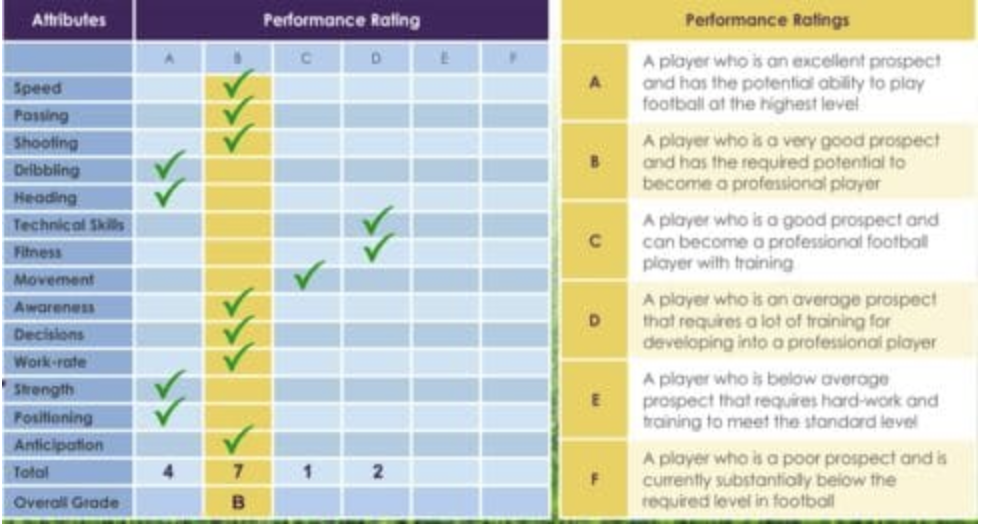
How club sign new players
- Team work
- Player personality
- Player mentality
- Training attitude


